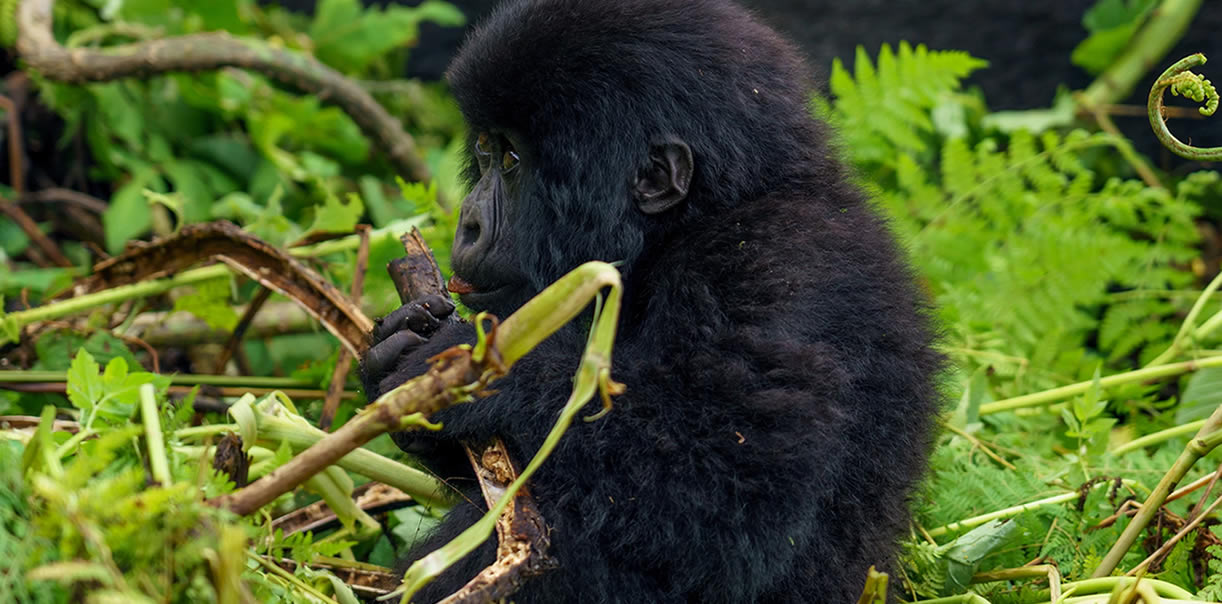All symptoms of the COVID-19 Virus indicate a serious threat to the lives of mountain gorillas in Africa if exposed to this deadly virus, although there is no evidence or research been done yet to draw a conclusion about this statement. Each day mountain gorillas are in close proximity with tourists and hence are at a very high risk of contracting human diseases. In the past the Sabyinyo family has been identified to have several cases of respiratory disease picked from human viruses which at times lead to deaths in the family. The gorilla doctors have been treating it and research is still underway on how to completely cure it. The Coronavirus COVID-19 poses as a real danger for the gorillas in the wild.
As the world stands still waiting on a right cure for the Coronavirus COVID-19, all business stands still, tourism is on stand too but what of the tourists booked to see gorillas?
There has been a lot of concern from tourists planning for gorilla trekking in Uganda, Rwanda and Congo about the safety of mountain gorillas and the chances of the different governments closing the attraction until the virus has been completely ruled out.
To prevent the importation of coronavirus into the gorilla host countries, the respective governments have introduced strategies to protect their people and the wildlife resources.
What is being done to minimize contraction?
- Screening of all passengers entering through all the different airports and border entry points with strict checks points
- All visitors coming from coronavirus affected countries must undergo a self quarantine for 14 Days to rule out any chance of entering the country with the virus
- Provision of sanitizers to local community and community awareness of how to manage and watch out for the symptoms of the virus so that it doesn’t spread
- Park personnel has been equipped to screen all tourists heading for gorilla trekking after the briefing the different park offices.
- Introduction of face masks for all tourists looking to hike mountain gorillas
- Gorilla Doctors and researchers are working closely with the respective governments to control an chances of disease transmission from tourists to gorillas in their habitat and a highes percentage lies on what the tourists need to do to help protect the gorillas.
What needs to be done by tourists to help mountain Gorillas
A lot of mountain gorillas protection needs to be done by the tourists travelling across the globe to see gorillas in Africa. The core value of gorilla tourism is to facilitate gorilla conservation and hence a big part of gorilla protection must be done by the tourists to successfully protect he critically endangered great apes. Discussed below are key areas which a tourist needs to do so that gorillas are kept safe from the coronavirus COVID-19.
Its very important for the tourists to follow all the rules set by the park to protect the gorillas effectively. Tourists must keep the stipulated distance of at least 7 meters away from gorillas, even when the gorillas move closer because they get very curious, listen to your guide and follow his instructions.
Don’t go trekking for gorillas when sick! With the Coronavirus being very rampant, even a simple cold is a threat to the gorillas. Other symptoms to watch out is coughing, sneezing, feverish, throat sore and general body weakness.
Mountain gorillas are very susceptible to illnesses with human respiratory system and have a very low immunity to human infections.
Use your sanitizer incase you need to cover your mouth to sneeze or cough when in the forest. Always cover your mouth when sneezing even when you have a mask on.
Without a cure yet for the fast spreading virus, it’s a major debate whether mountain gorilla tourism in Uganda, Rwanda and Congo will be closing if the virus isn’t controlled. Right now we don’t have an answer to that yet as tourism is one of the great income earners contributing the largest percentage of Uganda’s budget. In this time of crisis, the revenue collections from gorilla permits sells are needed to fund research and proper conservation of gorillas in the wild.


